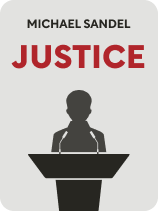

This article is an excerpt from the Shortform book guide to "Justice" by Michael Sandel. Shortform has the world's best summaries and analyses of books you should be reading.
Like this article? Sign up for a free trial here.
What is communitarianism? How does communitarianism differ from liberalism and utilitarianism?
Communitarianism is a political ideology that prioritizes the connection between the individual and the community. According to political philosopher Michael Sandel, communitarianism is the best principle for organizing human societies.
Keep reading to learn about communitarianism, according to Michael Sandel.
Communitarianism
What is communitarianism? Communitarianism argues that the goal of the state is to create and preserve a community of citizens by promoting public engagement, kinship, and a sense of belonging. According to Sandel, his version of communitarianism combines the best parts of utilitarianism, libertarianism, liberalism, and Aristotle’s political theory while avoiding the morally concerning portions:
Utilitarianism: Sandel’s view shares the utilitarian concern for the overall public good by focusing on serving the community as a whole. Unlike utilitarianism, however, Sandel’s philosophy sees individuals as inherently valuable community members regardless of pleasures or pains.
Libertarianism: Similar to libertarians, Sandel appreciates the benefits of the free market as a tool for organizing and creating wealth. He also believes that the state should, to a degree, respect personal freedoms. However, Sandel doesn’t argue for complete deregulation of these areas—instead, he argues that the state should manage and regulate personal conduct and the market to make sure they serve the community as a whole.
Liberalism: Much like liberal philosophers, Sandel argues for a baseline level of decency, respect, and personal rights for all human beings. However, he disagrees with the liberal view that those baseline moral obligations derive only from reason. He argues that people also have moral obligations to their loved ones and communities. Sandel also disagrees with the liberal view that governments should avoid questions of morality—he says people must debate these questions to determine their community’s goals and differences.
Aristotle’s political theory: Sandel agrees that the state should help people live fulfilling and virtuous lives. However, unlike Aristotle, he’s against forcing people into certain roles and distributing social goods based on merit and moral “desert.” Instead, Sandel believes that the state should instill values of kinship, solidarity, and civic participation so everyone can freely debate over the best, most moral way to live and distribute social goods.
(Shortform note: While Sandel doesn’t connect his version of communitarianism to any specific religion, some philosophers (including 17th-century English philosopher Thomas More) argue that religion is necessary for communitarianism, as it provides the shared values necessary for people to collaborate and organize. While he opposes religious discrimination, More’s Utopia describes a self-sustaining community built on Catholic faith and ideals. In Utopia, religious tenets encourage citizens to prioritize each other and the community as a whole over material things—ensuring everyone always has enough to get by, and that citizens collaborate instead of competing for wealth.)
| Beyond Just and Unjust: Friedrich Nietzsche As he explains in the introduction of Justice, Sandel believes that moral and political philosophy is a project of reflecting on and adjusting your beliefs. His communitarian view reflects this, as it incorporates Sandel’s favorite ideas from many different philosophies into a cohesive whole. However, another philosophical approach argues that instead of synthesizing ideas from previous thinkers, we must instead reject them in favor of something entirely different. One of the most significant thinkers using this approach is 19th-century German philosopher Friedrich Nietzsche. Nietzsche strongly rejected the idea of “universal truths” that many past philosophies appealed to, instead arguing that there was no objective good or evil and that people only used these concepts to delude or benefit themselves. He suggested that instead of appealing to objective morality, we instead should recognize that life is inherently competitive, hierarchical, and often brutal. Let’s see how Nietzsche responds to two of the major ideas above: Inherent human value: Michael Sandel’s communitarianism agrees with the liberal and libertarian view that individuals have inherent worth—this informs his belief in equal rights and freedoms. Nietzsche rejected this idea, believing it was a collective fantasy born out of the Christian idea that God loved everyone equally. If one viewed reality as-is without any abstract ideas about the universe, claimed Nietzsche, then they’d see no evidence that people were inherently equal or valuable. Instead, they’d see that humans are like other animals: some are stronger or smarter than others, and our lives have no greater purpose or value beyond our ability to survive and dominate others. Nietzsche believed in embracing that instead of hiding from it. Community structure: Much like utilitarians and Aristotle, Sandel defines communities as a group of people collaboratively working toward a collective good. This informs his views on market regulation and public service. Nietzsche, on the other hand, believed that a select few willful and intelligent individuals should rise up to guide the weak and directionless “masses.” In a weak and decadent society, said Nietzsche, the people on top aren’t chosen by will and strength alone but instead through arbitrary means or the will of the weak—things like democracy, hereditary monarchy, or religion. In a strong society, however, he said the most willful can lead and achieve greatness through things like military conquest or works of art. |

———End of Preview———
Like what you just read? Read the rest of the world's best book summary and analysis of Michael Sandel's "Justice" at Shortform.
Here's what you'll find in our full Justice summary:
- A philosophical look at the goal of our society and its laws
- What a moral and just government and society look like
- Sandel's suggestions for how to create a more moral world






